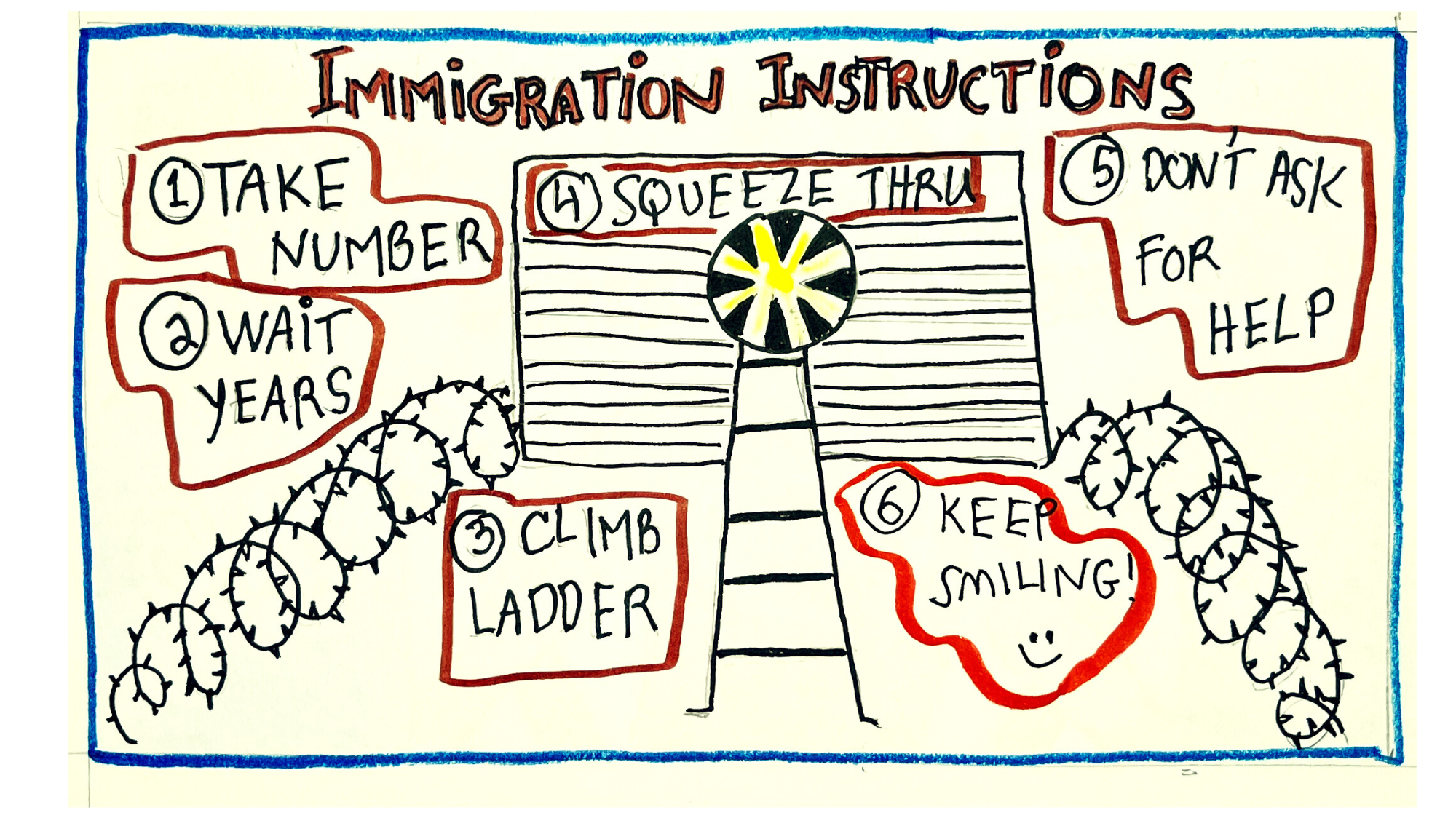Caregiving at the Crossroads of Labor and Immigration Law
Abigail Rosenfeld
21 October 2023Temporary visa programs leave participants at the mercy of their employers, and therefore susceptible to abuse. Home care workers hoping to enforce their rights have two options: complain to the Department of Labor or pursue private litigation

Care Talk readers may recall a moving 2019 article in the New York Times that featured Marjorie Salmon, a home care worker from Jamaica making $160 per day caring for a man with Alzheimer’s and Parkinson’s disease. The piece highlighted that many professional caregivers are immigrants and women of color. It also underscored that these workers are often overlooked and undervalued. My desire to understand why home care workers lack legal protections, and what we can do about it, inspired me to write Consider the Caregivers: Reimagining Labor and Immigration Law to Benefit Home Care Workers and Their Clients.
Regulatory loopholes leave home care workers susceptible to exploitation. Lawmakers excluded domestic workers from the Fair Labor Standards Act (FLSA), which set minimum wage and overtime requirements. Subsequent reform entitled many, but not all, home care workers to protection under federal wage and hour laws. Home care workers hoping to enforce their rights under the FLSA have two options: complain to the Department of Labor or pursue private litigation. Language barriers, lack of information, and fear of retaliation prevent workers from coming forward. The rise of misclassification — the practice of treating workers like independent contractors instead of employees to save money and avoid liability — puts even more home care workers beyond the FLSA’s reach.
Immigration laws likewise fail home care workers. Although there are many types of visas, employment-based visas fall into two main categories: immigrant and nonimmigrant. Employment-based immigrant visas offer recipients the opportunity to obtain permanent residency in the United States. Applicants with exceptional skills or educational credentials get preference over others. Only 10,000 employment-based immigrant visas are made available to unskilled workers, including home care workers, each year. Meanwhile, employment-based nonimmigrant visas offer workers with specialized skills, agricultural workers, and unskilled seasonal workers temporary residency in the United States. Temporary visa programs for agricultural and seasonal workers leave participants at the mercy of their employers, and therefore susceptible to abuse, as this 2022 Associated Press article explains.
Undocumented home care workers face additional challenges. Under the Immigration Reform and Control Act (IRCA), employers must verify their employees’ immigration status. The IRCA does not apply to independent contractors, and families hiring caregivers on the “gray market” are unlikely to follow the letter of the law. Undocumented immigrants are therefore more likely to work under the table or as independent contractors without FLSA coverage or with significant barriers to enforcement. Add to this the fact that undocumented immigrants are at constant risk of deportation, which this 2018 New York Times piece captures, and it is easy to see how the existing framework is ripe for both worker exploitation and instability for clients.
Given that demand for home care workers is expected to skyrocket as baby boomers enter their later years, some have proposed the creation of a guestworker program specifically for caregivers. Japan, a country that is experiencing profound demographic changes of its own, established a guestworker program for unskilled workers a few years ago. Visa recipients can live in Japan for up to five years while working in industries experiencing labor shortages, including direct care. A guestworker program based on Japan’s model would suffer from the same issues that make existing employment-based nonimmigrant visas problematic.
Thoughtful policy interventions could address the looming caregiver shortfall while discouraging exploitation. In Consider the Caregivers, I propose adjusting the preference structure for employment-based immigrant visas to give prospective home care workers a viable path to rewarding jobs and long-term stability. Preference should be given to essential workers, including home care workers, as a job’s skill level does not determine its societal value. Congress should also pass legislation to lift the burden of enforcing federal wage and hour laws off workers’ shoulders. Instead, the government should invest in proactive, strategic enforcement initiatives. If coupled with efforts to increase pay and benefits, improve opportunities for career advancement, and address gaps in insurance coverage, these changes could foster a more sustainable, and just, caregiving system.
The cover picture is designed by Nancy Folbre.
This work is licensed under a Creative Commons Attribution-NonCommercial-NoDerivatives 4.0 International License.
One comment on "Caregiving at the Crossroads of Labor and Immigration Law"